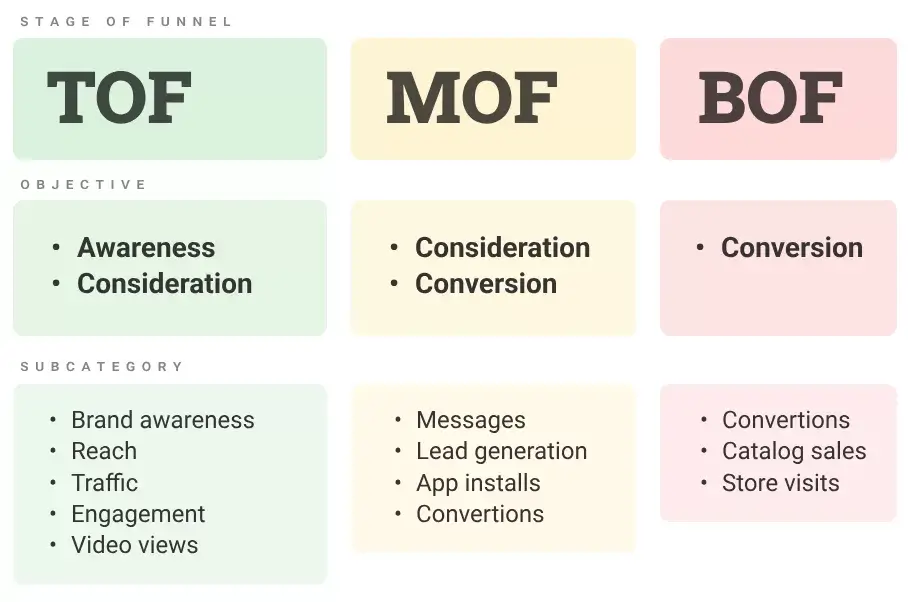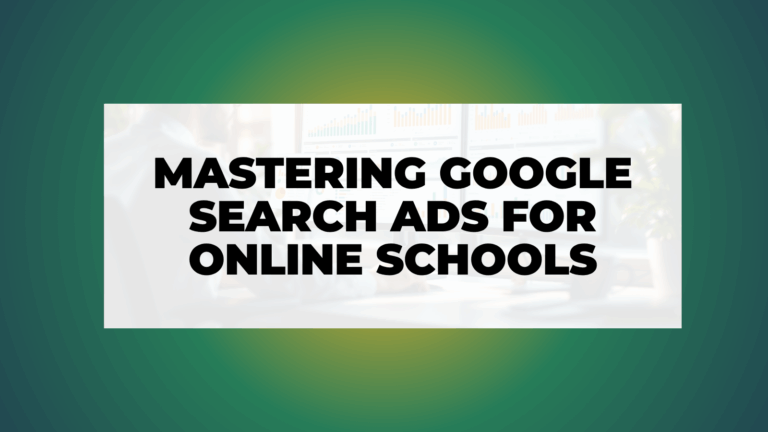Scaling Pay-Per-Click (PPC) campaigns on Google, Meta, Microsoft ads and other platforms can feel like a cheat code to growing your sales. But when done without the right strategy, it’s like pouring water into a leaky bucket—frustrating and wasteful.
Even successful businesses often stumble when trying to scale.
Let’s break down the top five reasons why scaling PPC fails and, more importantly, how you can fix them.
Over the years, working with businesses of various sizes, I discovered that the reasons PPC scaling fails usually lie outside of the ads account and ad budgets.
Let me explain.
There are 5 components of success with PPC, and when one of them is overlooked, it usually affects your efforts in unpredictable ways. Here’s a quick summary of the top 5 components:
| Success Component | If missing | How to Fix It |
| Strong Offer | Irrelevant | Craft irresistible offer |
| Web Analytics | Running blind | Implement tracking & reporting |
| Ad Account Structure | Wasted budget and time | Organize campaigns and targets |
| Communication Strategy | Unappealing | Align ad copy with audience, formats, and pages |
| Landing Page | Poor conversions | Optimize for speed and simplicity. |
Let’s explore each of them and see how they affect your scaling efforts.
1. The Offer

As Alex Hormozi says, a strong offer should be so good people feel stupid saying no.
Scaling PPC only works if your offer offers irresistible value. In fact, the offer is the single most important component of your campaign and scaling efforts. With a truly compelling offer, even a poorly structured campaign or unremarkable creative can drive explosive growth.
What Makes a Great Offer:
- High Value: Components could be “faster”, “guaranteed” and others (other than price) but there needs to be a compelling and clear reason
- Low Risk: Money back guarantees are often used to eliminate hesitation (e.g., “14-day results or your money back”).
- Unique Selling Points: hyper-specific solutions (lead generation course for C39 licensed roofing contractors)
Pro Tip: Apply the Value Equation:
Value = (Dream Outcome × Perceived Likelihood of Achievement) ÷ (Time Delay + Effort / Cost)
Focus on increasing the outcome and likelihood while reducing time and effort to create an offer that can carry your campaign, even under less-than-perfect circumstances.
With a strong offer, you don’t need a fancy website or elaborate visuals—if your offer is strong enough, you could present it in a Google Doc and still make sales.
But it’s very likely you are not offering something so dramatically innovative and groundbreaking so other components come to play.
2. Web Analytics
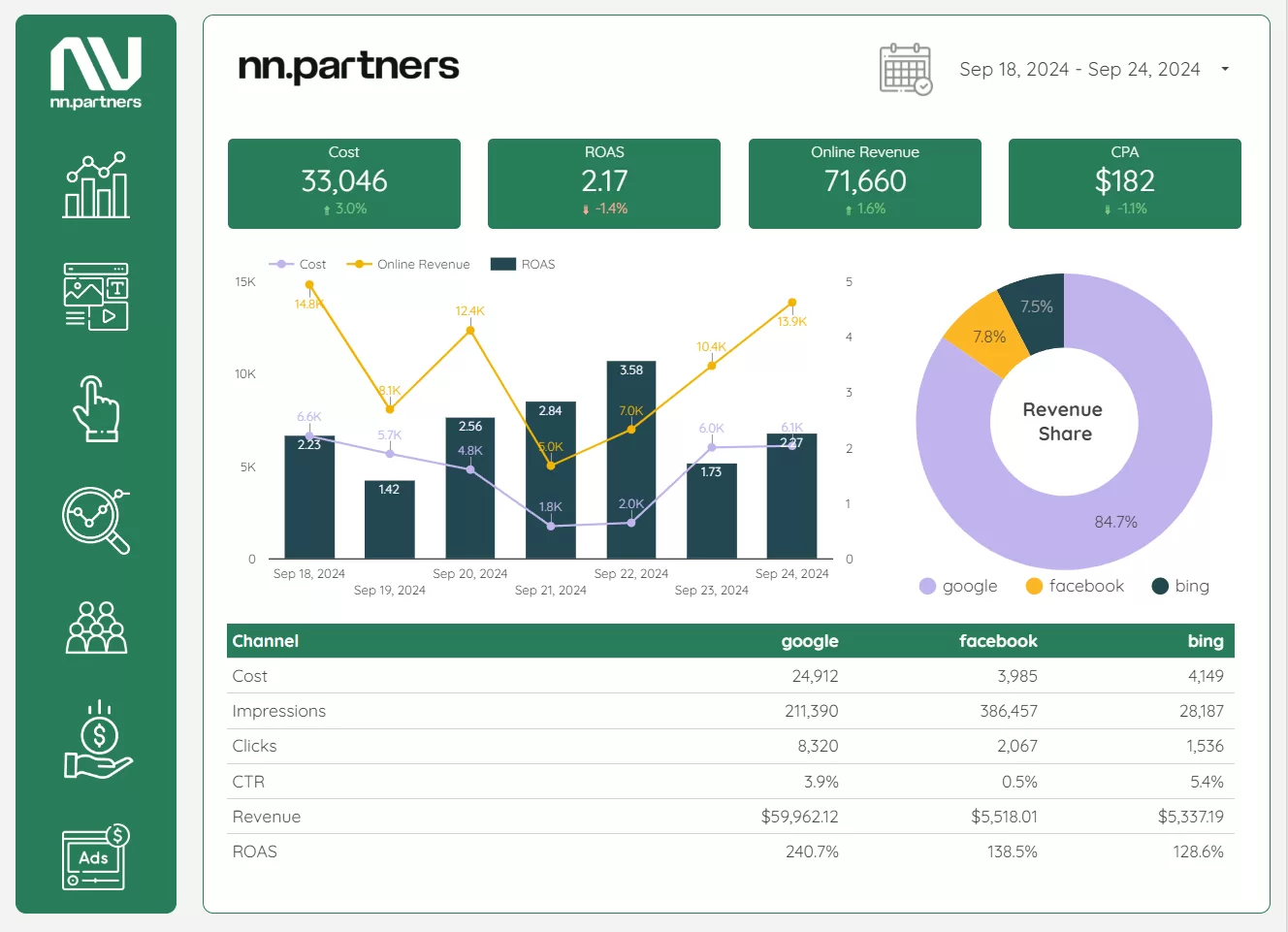
Scaling PPC without robust analytics is like driving to a new destination without a GPS—you’re moving, but are you getting closer to your goal?
As Peter Drucker famously said, “What gets measured gets managed.”
So without proper tracking and reporting, you’re not just blind—you’re guessing, and guessing costs money.
Why It’s Crucial: Analytics fuel optimization. They tell you which strategies are working, which are not, and where your budget delivers the best return. Without them, you’ll fall into the trap of relying on intuition or luck, which eventually leads to wasted ad spend and missed opportunities.
How It Fails Without Analytics: To quote Avinash Kaushik, analytics expert and author of Web Analytics 2.0, “Most data is worse than useless; it’s misleading.” Without proper tracking, even the data you have can lead you astray, causing more harm than good.
What Success Looks Like:
- Granular Tracking: Key metrics such as leads, CPL (Cost Per Lead), sales, and ROAS (Return on Ad Spend) are accurately tracked.
- Actionable Insights: Clear visibility into which ads, audiences, and tactics are delivering results—or draining your budget.
- Data-Driven Adjustments: Insights from trends, funnel performance, and customer behavior guide where to scale and where to cut.
When done right, analytics empower you to spend smarter, scale confidently, and outmaneuver competitors.
Without it, you’re left in the dark, hoping for results instead of creating them.
3. Ad Account Structure
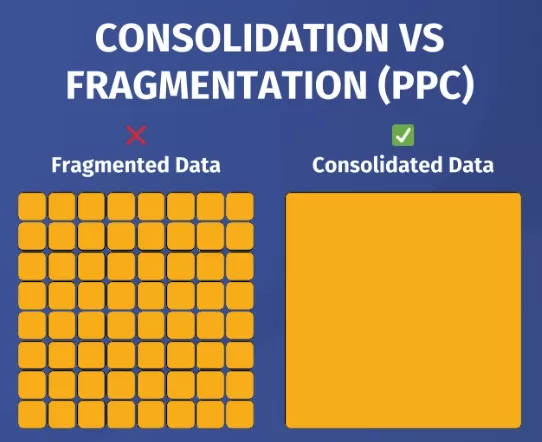
 Miles McNair
Miles McNairYour ad account structure isn’t just a technical detail—it’s the backbone of a scalable PPC strategy.
Think of it like the foundation of a building: if it’s poorly designed, everything else collapses under pressure. A well-structured account ensures every dollar works as hard as possible while giving you the clarity to optimize and scale effectively.
Why It’s Crucial: A clean, logical structure allows you to:
- Allocate your budget efficiently to the best-performing campaigns.
- Target the right audiences with precision and relevance.
- Quickly identify underperforming elements and adjust without confusion.
Without it, scaling becomes chaotic. Overlapping campaigns, poorly grouped keywords, and mismatched bids lead to wasted spend and a lot of frustration.
What Success Looks Like:
- Segmentation by funnel stage: Organize campaigns based on buyer intent (Top of Funnel, Middle of Funnel, Bottom of Funnel) and use relevant bidding and messages tailored to that stage.
- Consolidate Ad Sets or Keywords: Each ad group or campaign focuses on a specific theme, goal, or keyword set for better relevance and algorithmic bidding.
- Goal-Aligned Budgets and Bids: Budgets are set based on business priorities, and bids are strategically adjusted for optimal ROI.
How to Spot and Fix Inefficiencies:
- Duplicate targeting or overlapping campaigns? Consolidate.
- Broad, generic keywords draining your budget? Tighten and refine.
- High impressions but low conversions? Redirect funds to proven performers.
Pro Tip: Perform regular audits of your account. Look for campaigns that overspend without results, underperforming keywords, or audience overlaps. Reallocate resources to top-performing ads and pause what isn’t working. As your campaigns grow, your structure should evolve to keep pace with increasing complexity.
With a strong account structure, scaling doesn’t mean chaos—it means clarity, control, and consistent results. It’s the difference between a bloated ad spend and a lean, efficient strategy that grows with your business.
4. Communication Strategy
Your communication strategy is the thread that connects your audience to your offer. From ad copy to landing pages and follow-ups, every word matters.
As Donald Miller, author of Building a StoryBrand, emphasizes, “If you confuse, you lose.”
Clear, compelling communication is what convinces prospects to trust you, engage with your message, and take action.
Why It’s Crucial: The most successful PPC campaigns don’t just generate traffic—they build relationships. When your messaging speaks directly to your audience’s needs, desires, and fears, it creates a seamless journey from curiosity to conversion. Inconsistent or generic communication, however, leads to mistrust and drop-offs.
What Success Looks Like:
- Ad Copy That Resonates: Your text mirrors the audience’s tone, intent, and language. It makes them feel understood and draws them in with a clear promise.
- Seamless Alignment: Every piece of the campaign—from the ad to the landing page to the email follow-up—delivers a unified, cohesive message.
- Strategic Retargeting: Retargeting feels personalized and helpful, offering solutions to problems rather than spamming users with repetitive content.
How Poor Communication Undermines Success:
- Ads that promise quick results but lead to overly complex, jargon-heavy landing pages break trust and create confusion.
- Retargeting campaigns that lack relevance or context irritate your audience rather than re-engage them.
Pro Tip: Apply Robert Cialdini’s Principles of Persuasion to strengthen your communication:
- Authority: Highlight expertise or credentials (e.g., “Learn from certified experts who’ve trained 10,000+ students”).
- Social Proof: Showcase testimonials or case studies to validate your promises.
- Scarcity: Use time-limited offers to create urgency.
Tailor your messaging to meet prospects where they are.
Great communication, as Miller points out, is about clarity. When every touchpoint feels connected and intentional, your ads don’t just generate clicks—they create meaningful (and profitable) relationships.
5. Landing Page
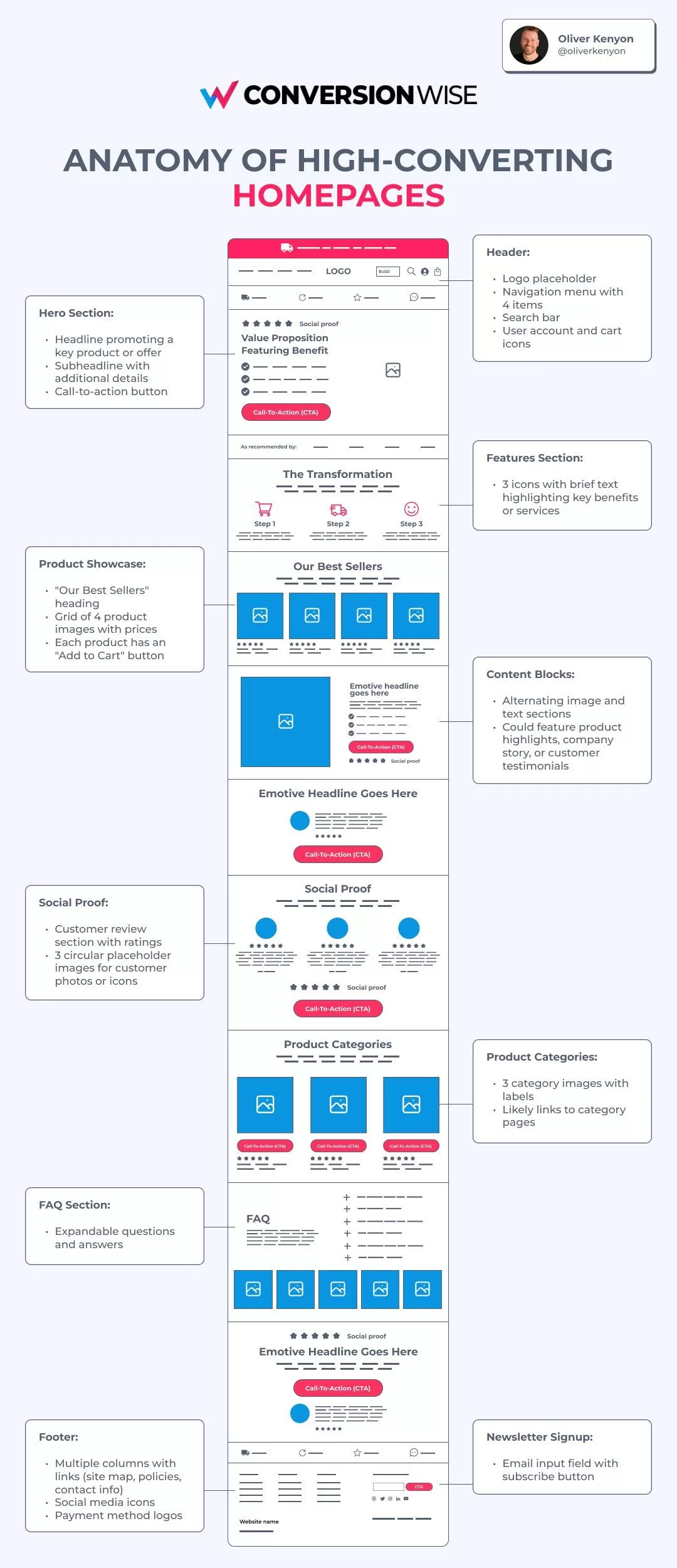
Your landing page is the final step in turning ad clicks into actual sales. It’s where all your efforts in crafting a compelling offer, running targeted ads, and fine-tuning your communication come together. If your landing page falls short—whether due to slow load times, poor design, or unclear messaging—it creates a bottleneck that stalls your entire campaign.
Why It’s Crucial: Even the most effective ad campaigns can’t save a landing page with a broken checkout. Visitors need to immediately see the value, feel confident in their decision, and know exactly what to do next. A poorly optimized page confuses, frustrates, and drives users away, wasting your ad spend.
What Success Looks Like:
- Lightning-Fast Load Times: A page that loads in under three seconds ensures you don’t lose visitors before they even see your content.
- Focused, Action-Oriented Design: A single, clear call-to-action (CTA) guides visitors toward conversion without distractions.
- Trust-Building Elements: Testimonials, case studies, certifications, and guarantees reassure visitors that they’re making the right decision.
- Mobile Responsiveness: With a significant portion of traffic coming from mobile devices, your page must look and function perfectly on all screen sizes.
How Poor Landing Pages Undermine Success:
- Slow-loading pages lead to high bounce rates, with users leaving before they even interact with your content.
- Overloaded designs or too many options confuse visitors, diluting your message and reducing conversions.
- Lack of social proof or guarantees erodes trust and increases hesitation.
An optimized landing page doesn’t just close the deal—it amplifies the impact of your entire PPC strategy. By streamlining the user experience and reinforcing the value of your offer, it ensures your efforts translate into measurable growth.
Final Thoughts
Scaling PPC isn’t about throwing more money at ads—it’s about perfecting every piece of the puzzle. Success depends on five interconnected components:
- A Strong Offer: The cornerstone of every great campaign—ideally so compelling that it sells itself. With irrelevant offer, even the best ad strategy can’t deliver results.
- Web Analytics: Your GPS for to get to your desired destination. Without web analytics, you’re guessing, and guessing leads to wasted spend.
- Ad Account Structure: A clear, logical setup ensures your budget works efficiently and your strategy scales without chaos.
- Communication Strategy: Messaging that speaks directly to your audience’s needs builds trust and engagement, driving conversions at every step.
- Landing Page Optimization: The final step that seals the deal. A frictionless, fast, and focused landing page turns clicks into customers.
These components aren’t independent—they’re a system. A weak link in one area can undermine the others, while strength across all five creates conditions for exponential results.
So before scaling your campaigns, take a step back.
Audit each of these components and ensure they’re working together seamlessly. When you focus on these foundational elements, scaling isn’t just possible—it’s predictable, sustainable, and highly profitable.
If you’re ready to unlock the full potential of your PPC strategy but don’t know where to start, nn.partners can help. Schedule your call today to see how we can work together to scale your PPC campaigns and open a new profitable chapter in your company’s growth.

